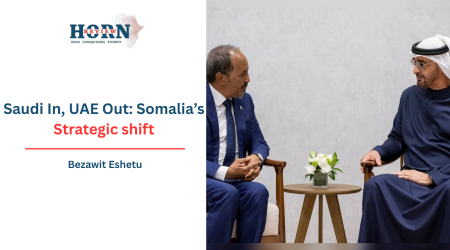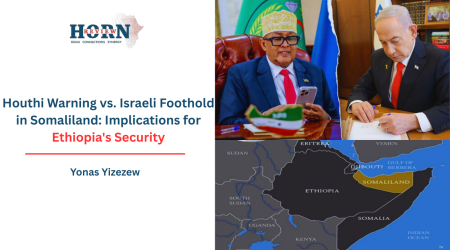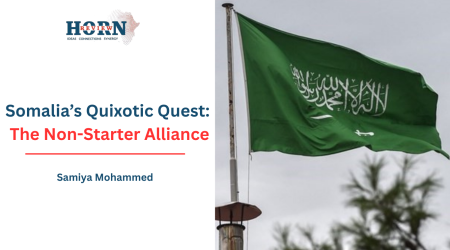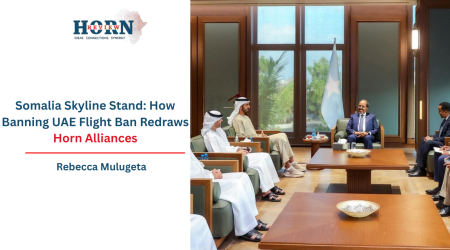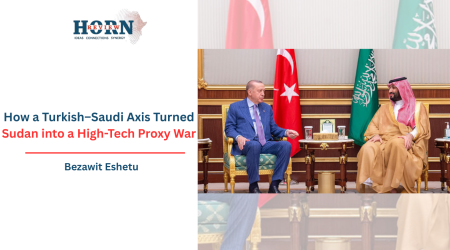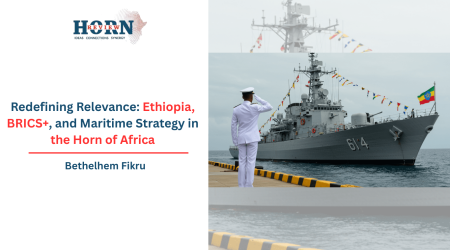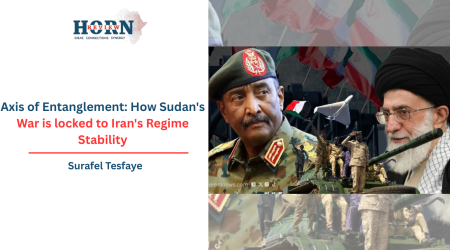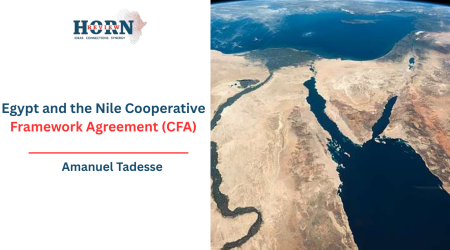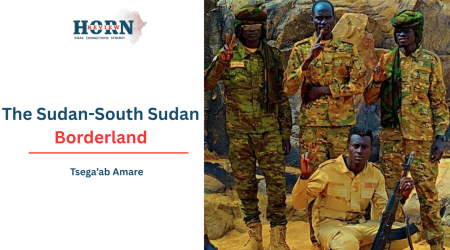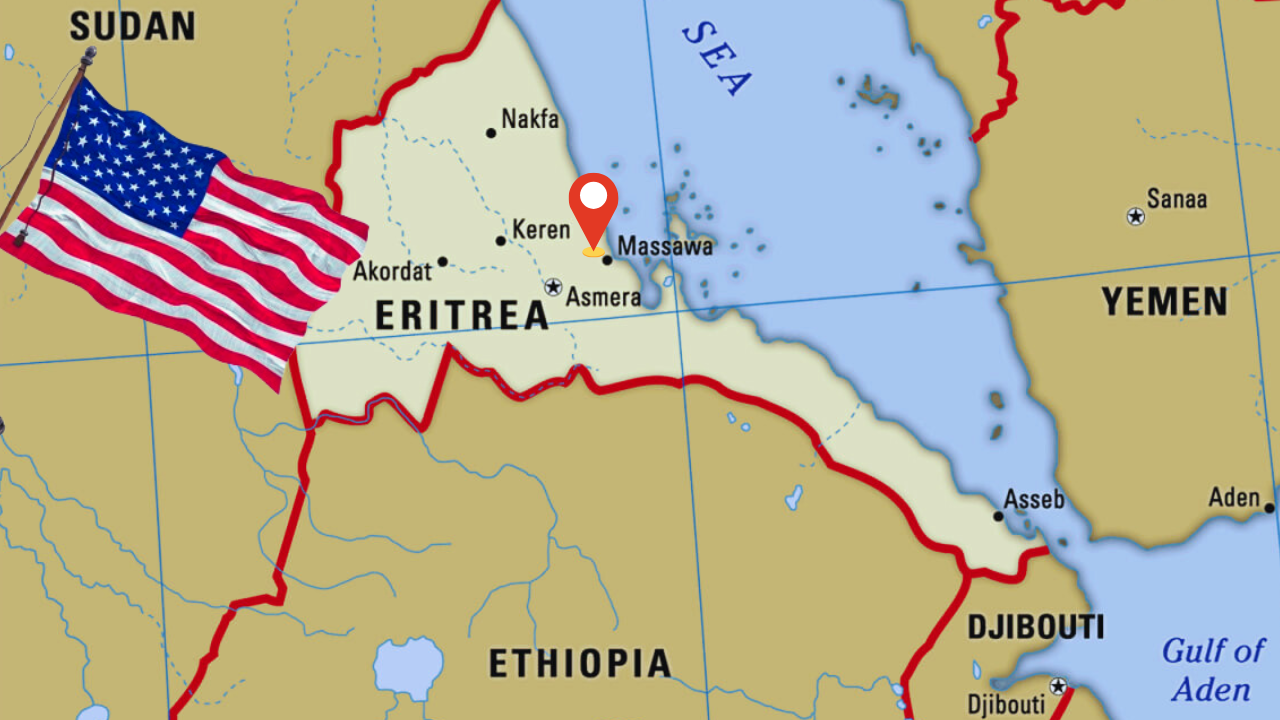
12
Jun
Eritrea’s Strategic Abandonment Amid Trump’s Transactional Diplomacy
On June 4, President Donald Trump promulgated a comprehensive travel ban that reinstated and expanded prior restrictions, this time encompassing nationals from twelve countries, Eritrea among them. The executive order’s language reveals less overt hostility than a profound bureaucratic skepticism. Eritrea was singled out not for affiliations with terrorism or ideological extremism but for its systemic failure to meet fundamental administrative standards. Its visa overstay rates – both for tourists and students – rank among the highest globally, and the United States government has publicly expressed doubts about Eritrea’s capacity to competently issue valid civil documentation. This decision transcends mere travel limitations; it signals a formal disengagement, reflecting Eritrea’s diminished strategic relevance within the transactional framework of the Trump administration’s “America First” foreign policy.
The erosion of U.S.-Eritrea relations is not a recent phenomenon but rather a regression from an already fraught engagement marked by mutual mistrust and disillusionment. Under President Isaias Afwerki, Eritrea has consistently framed the West as a neo-colonial apparatus intent on undermining national sovereignty through ideological subversion. This narrative has fortified a rigid authoritarian regime, resistant to reform and largely insulated from external influence. The 2018 rapprochement with Ethiopia briefly offered a diplomatic opening, with the lifting of multilateral sanctions presenting Eritrea with an opportunity for reintegration into the international community. However, Eritrea’s unwillingness to recalibrate its posture or undertake meaningful governance reforms resulted in a swift squandering of this window.
The conflict in Tigray proved a critical inflection point. Eritrean military involvement – widely condemned for exacerbating an already dire humanitarian crisis – provoked sharp rebuke from Washington. The reinstatement of sanctions targeting the People’s Front for Democracy and Justice (PFDJ) and Eritrean Defence Forces reinforced Asmara’s image as a destabilizing actor in the Horn of Africa. From the vantage point of U.S. policymakers, Eritrea’s conduct during the conflict confirmed long-held suspicions: it is not only uncooperative but actively disruptive. This perception was compounded by Eritrea’s refusal to engage substantively with American diplomatic overtures or to increase transparency regarding its internal security mechanisms and border activities.
By contrast, Ethiopia has adeptly positioned itself as a reliable partner capable of fostering regional stability. The U.S. Ambassador to Ethiopia, Ervin Massinga, recently underscored America’s support for Ethiopia’s aspiration to access the sea, underscoring Ethiopia’s economic and geopolitical significance as a pivotal actor in regional affairs. This endorsement mirrors a broader recalibration in U.S. Africa policy – eschewing value-driven diplomacy in favor of pragmatism grounded in capacity, reliability, and convergent interests. Ethiopia’s pursuit of maritime access has received notable international recognition, including from European powers such as France, signaling its emergence as a central figure in the Horn’s evolving political economy.
Eritrea’s external engagements remain comparatively limited and are often characterized by alliances marked more by transactional convenience than strategic coherence. The regime’s ties, notably with Cairo, appear instrumental and transactional, reflecting shared grievances rather than a common strategic vision. Egypt’s interest in Eritrea largely derives from its utility as leverage against Ethiopia, particularly concerning the contentious Nile water dispute, rather than any intrinsic geopolitical value.
Economic vulnerabilities compound Eritrea’s precarious position. The Trump administration’s proposed 3.5% tax on remittances – embedded within a broader fiscal reform agenda – stands to disproportionately impact Eritrea, whose economy is heavily reliant on diaspora transfers. While not explicitly targeting Asmara, this policy threatens a crucial financial lifeline supporting not only Eritrean households but also the regime’s apparatus, which depends on diaspora taxation to fund state functions and elite patronage networks. The resultant erosion of this revenue stream risks further economic isolation and stagnation.
Under the Biden administration, U.S. engagement attempted a delicate balance between advocacy for human rights and democratization and strategic interests, maintaining a veneer of normative commitment despite waning influence. In contrast, the Trump administration’s “Make America Great Again” doctrine dispenses with such pretense, viewing Eritrea not as a reformable authoritarian state but as a non-cooperative actor devoid of strategic utility.
Trump’s administration eschews ideological exportation or investment in democracy promotion abroad. It prioritizes partnerships that yield tangible, strategic dividends while disregarding those perceived as unproductive.
This paradigm shift appears to have eluded Asmara. During recent national celebrations, President Afwerki reiterated his denunciations of neo-conservatives and foreign interventionists, seemingly unaware that American foreign policy has moved beyond the liberal interventionist ethos of previous administrations. In truth, Trump’s tenure signals an unequivocal pivot away from efforts to shape Eritrea’s internal governance or democratize its political order. The administration’s focus is pragmatic: to identify dependable partners, secure strategic gains, and disengage. Eritrea’s failure to recognize this evolution, conflating disengagement with ideological consistency, has rendered it increasingly marginalized.
Ethiopia, by contrast, has astutely capitalized on this realignment. By projecting itself as a regional stabilizer and economic powerhouse, Addis Ababa has attracted the attention and support of global powers fatigued by smaller, obstructionist actors. Rejecting ideological rigidity and anti-Western posturing, Ethiopia has embraced realpolitik – offering access and cooperation in exchange for international recognition and investment. The contrast is stark: while Eritrea isolates itself through outdated grievances and defiant rhetoric, Ethiopia ascends as a linchpin in Washington’s recalibrated Africa strategy.
The recent U.S. travel ban thus serves as a symbolic demarcation. It is a clear message that Eritrea poses excessive risks with insufficient strategic returns to merit sustained engagement. The critical question moving forward is whether Eritrea can adapt to this new reality or remains entrenched in a posture of resistance that no longer commands the world’s most powerful actor’s attention or respect.
By Mahider Nesibu,Researcher,Horn Review

